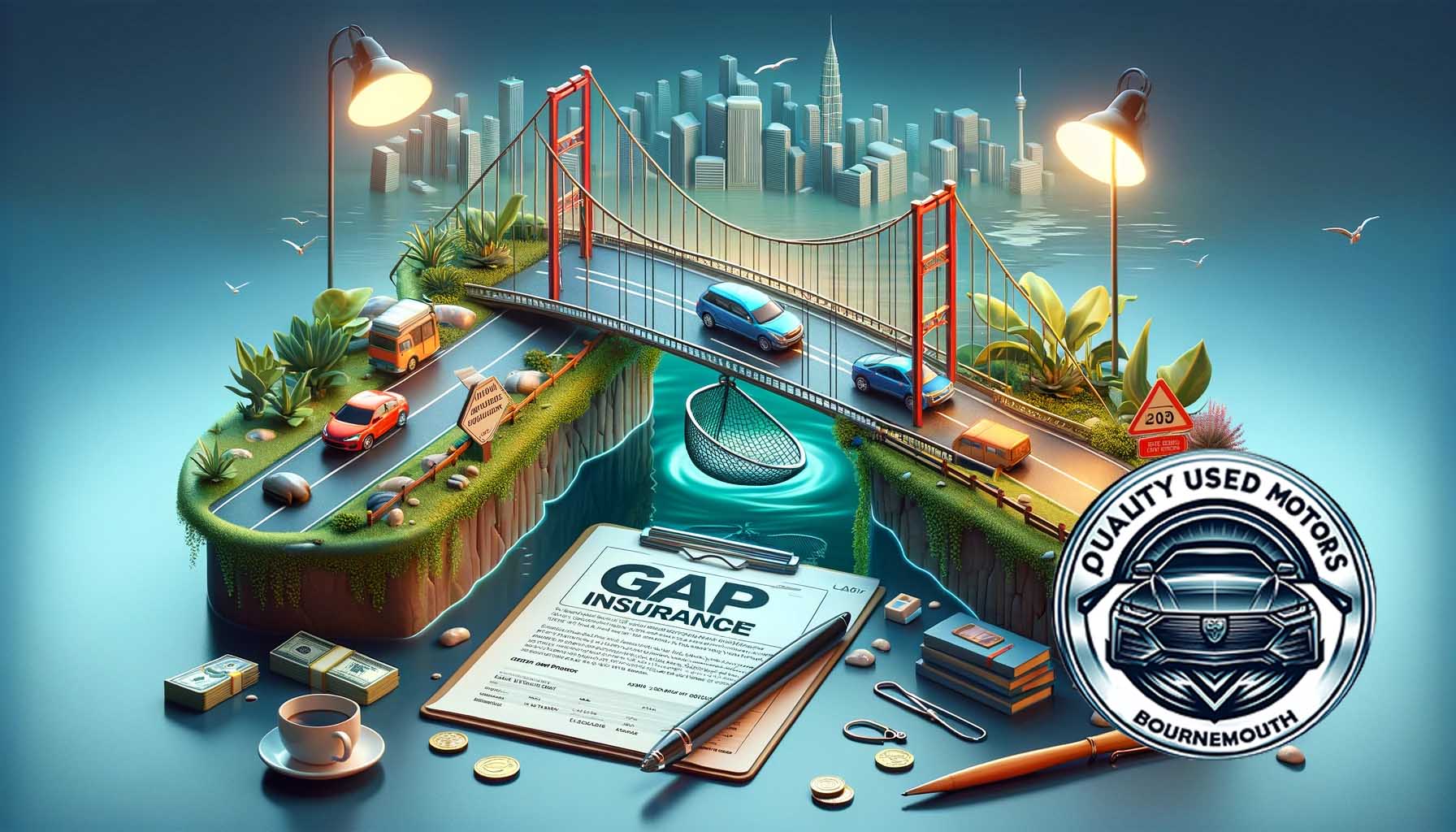Choosing the right insurance for a used car in the UK can be daunting, with Guaranteed Asset Protection (GAP) insurance being one of the most important yet often overlooked options. At Quality Used Motors, we’re dedicated to clarifying the complexities of car insurance, including GAP insurance—coverage that can prove invaluable in protecting against financial losses. It compensates for the difference between your car’s market value and the balance you owe on it if your vehicle is declared a total loss.
This guide aims to demystify GAP insurance, highlighting its significance, how it operates, and its potential advantages and drawbacks for used car owners. With vehicles depreciating quickly in their initial years, understanding and considering GAP insurance is crucial for anyone looking to safeguard their investment in a used car. Through expert guidance, Quality Used Motors seeks to equip you with the necessary information to assess whether GAP insurance is a beneficial addition to your coverage strategy.
Understanding GAP Insurance in Depth
GAP insurance stands as a critical safeguard for car owners, bridging the financial discrepancy between the purchase price of your vehicle and its depreciated value at the time of an insurance claim. This type of coverage becomes indispensable in scenarios where your vehicle suffers a total loss—either through accident, theft, or irreparable damage. Traditional car insurance policies compensate you based on the vehicle’s current market value, which, due to depreciation, can be substantially lower than the original purchase price or the outstanding loan balance. For individuals who finance their used car purchases, GAP insurance is a strategic measure to prevent financial loss, ensuring that you’re not left paying out of pocket for a vehicle you can no longer use.
The Mechanism of GAP Insurance
To illustrate how GAP insurance functions, consider this scenario: You acquire a used vehicle at a cost of £15,000. Fast forward a year, and the unfortunate happens—your car is declared a total loss. The settlement amount from your standard car insurance is based on the vehicle’s depreciated value, calculated at £11,000. However, your loan balance stands at £13,000, leaving a £2,000 shortfall. This is where GAP insurance proves its value, covering this £2,000 ‘gap’, thereby relieving you from the financial burden associated with the loan repayment on a car you can no longer use.
By effectively addressing the gap between the insurance payout and the amount owed on your car loan, GAP insurance provides a layer of financial security and peace of mind to car owners, ensuring that a significant loss does not accompany the physical loss of the vehicle. It’s an essential consideration for anyone financing a used car, particularly given the rapid depreciation rates of vehicles in the initial years of ownership.
Exploring the Varieties of GAP Insurance
GAP insurance comes in various forms to cater to the diverse needs of car owners, ensuring there’s a policy that aligns with every individual’s circumstances:
– Return to Invoice (RTI): This policy is ideal for those who wish to bridge the financial gap between their car’s insurance settlement amount and its original purchase price. RTI GAP insurance is particularly useful for recouping the full price paid for a car in the event of a total loss, ensuring owners are not left out of pocket.
– Return to Value (RTV): RTV GAP insurance is designed for individuals who need coverage for the difference between the car’s market value at the time the GAP insurance was initiated and the insurance payout. This is an excellent option for those who didn’t purchase their car new or have owned it for a while before deciding to get GAP insurance.
– Finance GAP: Tailored for car owners with outstanding finance or loan amounts, this policy covers the discrepancy between the insurance payout and the remaining debt. Finance GAP is a critical safeguard for ensuring you’re not burdened with repayments on a vehicle you no longer possess due to it being written off or stolen.
Assessing the Merit of GAP Insurance for Pre-Owned Vehicles
Determining the necessity and value of GAP insurance for a used car involves a careful assessment of several factors:
– Depreciation: The rate at which a used car loses its value can greatly influence the relevance of GAP insurance. Vehicles known for their longevity and slower depreciation may not necessitate such coverage as the financial risk of ending up “upside down” on a loan is minimised.
– Financing: The conditions under which you finance your vehicle play a pivotal role. A minimal initial down payment increases the likelihood of your loan balance exceeding the car’s value at some point, thereby making GAP insurance a wise investment.
– Affordability: The decision to opt for GAP insurance should also factor in its cost versus the potential risk of financial loss. It’s essential to weigh the policy’s expense against the security it offers, especially in light of your financial capacity and the probability of making a claim.
Weighing the Pros and Cons
Pros:
– GAP insurance offers invaluable peace of mind, ensuring you’re not financially disadvantaged if your vehicle is totalled or stolen.
– It’s particularly advantageous for individuals with sizable outstanding loans on vehicles that depreciate quickly, safeguarding against significant financial gaps.
Cons:
– Opting for GAP insurance introduces an additional expense, adding to your overall car ownership costs including your loan and standard insurance payments.
– The necessity of GAP insurance may diminish if you have a substantial down payment or choose a vehicle known for its stable value over time.
While GAP insurance presents an added cost, its value in providing financial protection and peace of mind can be substantial, depending on your specific circumstances. Carefully considering these factors will help you determine if GAP insurance is a strategic addition to your car insurance portfolio.
Making an Informed Decision on GAP Insurance
GAP insurance emerges as a pivotal consideration for many used car buyers, providing an essential safety net against the financial discrepancies caused by depreciation, especially under finance agreements. Its relevance, however, is not one-size-fits-all and hinges on a careful evaluation of personal circumstances, including the rate of vehicle depreciation, financing arrangements, and individual financial health.
At Quality Used Motors Bournemouth, we stress the importance of a tailored approach to insurance coverage. We advocate for a consultation with a seasoned insurance advisor, ensuring you receive expert guidance tailored to your unique situation. Such personalised advice can illuminate whether GAP insurance represents a prudent safeguard in your insurance portfolio, aligning with your needs, vehicle choice, and financial strategy. Ultimately, the decision to invest in GAP insurance should enhance your confidence and security in your automotive investment, safeguarding your financial interests in the face of uncertainty.







